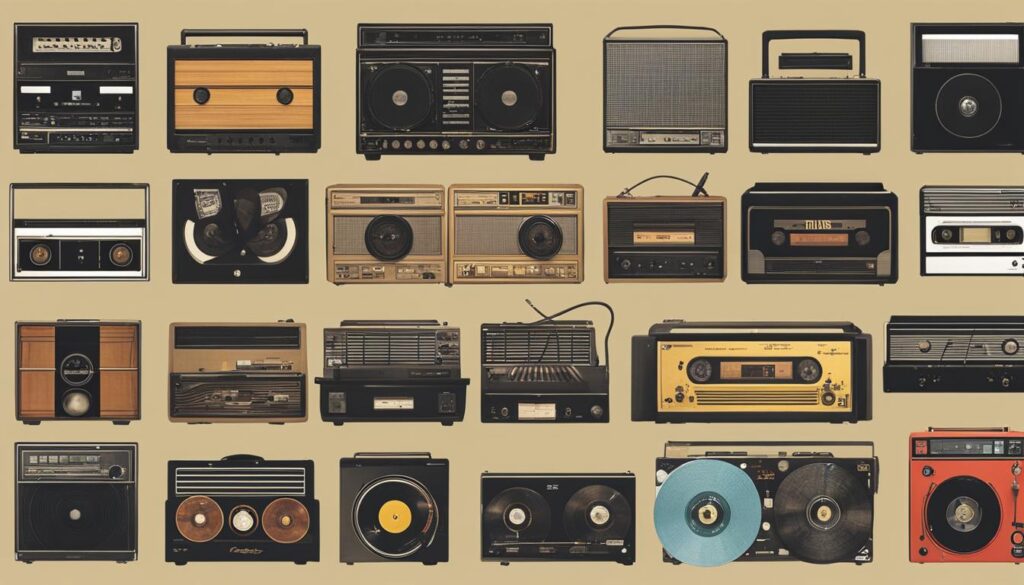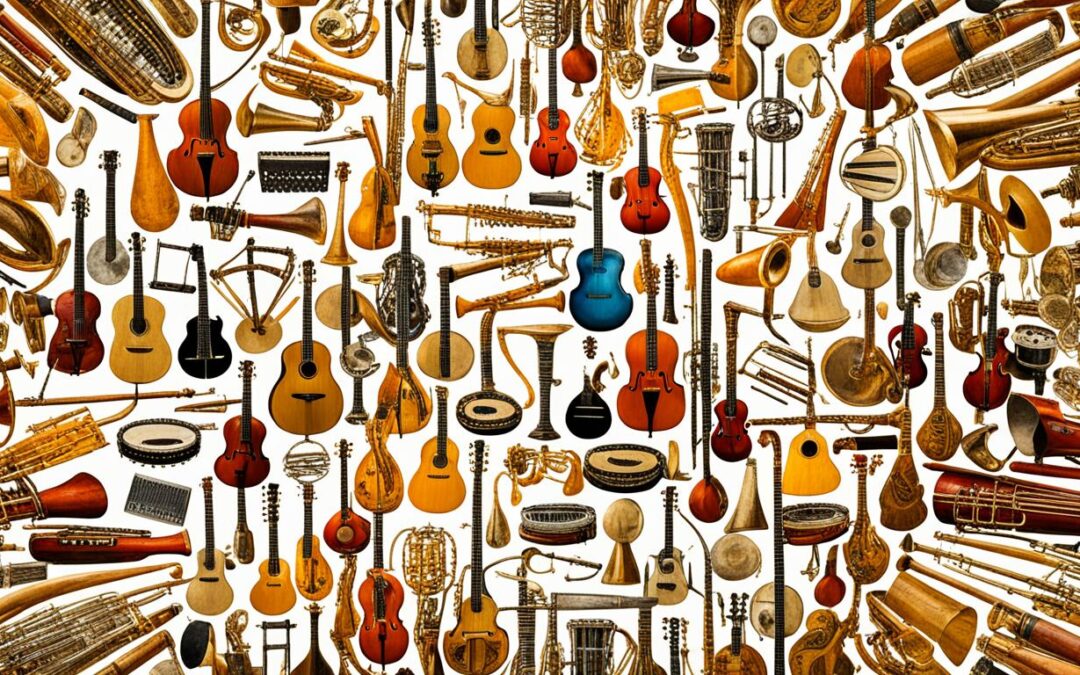Music is a universal language that transcends cultural boundaries and connects people from all walks of life. It is a powerful means of expression and storytelling, and its influence on our lives is undeniable. In this article, we will explore the fascinating relationship between traditional music styles and modern music genres, shedding light on the cultural diversity, heritage, awareness, and exchange that shape our musical landscape.
Traditional music styles have played a pivotal role in shaping the evolution of modern music genres. They provide a rich foundation of cultural heritage, reflecting the unique experiences, beliefs, and traditions of different communities. Through the exploration and reinterpretation of these traditional styles, musicians have been able to create innovative and captivating sounds that captivate audiences worldwide.
By drawing inspiration from the musical elements, instruments, and themes of traditional music, modern music genres have been able to infuse their compositions with a sense of cultural authenticity. This cultural exchange between traditional and modern styles not only preserves the past but also paves the way for future music innovation.
Moreover, the influence of traditional music styles extends beyond the confines of specific genres. It is a continuous flow of creativity, as artists from various backgrounds incorporate elements from different musical traditions into their own unique styles. This cultural fusion not only maintains a sense of connection to our roots but also opens doors to new artistic expressions and collaborations.
So, whether you find yourself tapping your feet to a catchy pop tune, swaying to the rhythm of a hip-hop beat, or rocking out to the sound of electrifying guitars, remember that behind each of these modern music genres lies a rich tapestry of traditional influences. Embracing cultural diversity, heritage, awareness, and exchange in music not only enriches our listening experience but also fosters a deeper understanding and appreciation of the world around us.
What is a music genre?
A group of songs or musical compositions that share musical elements, instruments, themes, or cultural origins are referred to as a genre of music. Music genres can overlap, merge, split, or even vanish over time. The classification of music into genres is arbitrary and frequently disputed.
Some common ways to categorize music genres are by:
- Musical elements: Different genres may have distinctive rhythms, melodies, harmonies, chord progressions, or tempos.
- Instruments: Certain genres are characterized by the predominant use of specific instruments or instrument combinations.
- Themes: Music genres can be identified by the recurring lyrical or thematic content, such as love, heartbreak, social issues, or storytelling.
- Cultural origins: Many genres have deep cultural roots and are associated with specific regions or communities.
The diverse range of music genres reflects the richness and variety of human expression, providing a platform for artists and listeners to connect and appreciate different musical traditions and styles.
How and Why Music Genres Have Changed Over Time and Across the World
Music genres are constantly evolving, shaped by a multitude of factors including technology, politics, social trends, and personal preferences. These influences have led to a rich and diverse musical landscape that continues to captivate audiences worldwide.
- Advances in technology have been instrumental in the transformation of music genres. The advent of recording techniques and the development of musical equipment have allowed musicians to experiment with new sounds and create innovative compositions. Digital platforms have also played a crucial role in democratizing the music industry, enabling artists from all corners of the globe to share their creations and reach a wider audience.
- Politics has long been intertwined with the evolution of music genres. Artists have often used their platform to express their views on social issues, challenge the status quo, and provide commentary on political events. From protest songs that fueled social movements to politically charged lyrics that sparked debates, music has been a powerful medium for expressing dissent and advocating for change.
- Social trends and personal preferences have significantly influenced the development of music genres. As societal values and tastes shift over time, new genres emerge to reflect the changing zeitgeist. Genres such as disco, grunge, and EDM have all risen to prominence in response to cultural shifts and evolving personal preferences. Additionally, music genres have become a way for individuals to identify and connect with like-minded communities, fostering a sense of belonging and cultural identity.
Music is a living art form that continues to evolve and adapt to the ever-changing world. By embracing technological advancements, reflecting political ideologies, and mirroring social trends, music genres will undoubtedly continue to shape and reshape the musical landscape for generations to come.

What are the Most Popular Music Genres?
When it comes to music, everyone has their favorite genres. According to various sources, some of the most popular music genres in the world are pop, hip-hop/rap, rock, country, and R&B. These genres have a massive following and continue to dominate the charts and airwaves.
Pop music is the undisputed reigning genre worldwide. Its catchy melodies, relatable lyrics, and upbeat rhythms make it appealing to a wide range of listeners. Pop music constantly evolves and adapts to current trends, ensuring its enduring popularity.
Hip-hop/rap is the powerhouse genre that rules the US music scene. With its rhythmic beats, clever wordplay, and raw storytelling, hip-hop/rap resonates with fans around the country. It serves as a platform for artists to express their emotions, experiences, and social commentary.
Rock music has been a driving force in the music industry for decades. From classic rock to alternative rock and everything in between, rock has a diverse range of sub-genres that cater to different tastes. Known for its electrifying guitars, powerful vocals, and energetic performances, rock music continues to inspire and influence artists in various genres.
Country music has deep roots in the rural areas of the Southern US. It tells stories about love, heartbreak, family, and life in the countryside. Country music captures the essence of American culture and evokes a sense of nostalgia and simplicity.
R&B, short for rhythm and blues, is characterized by soulful vocals, smooth melodies, and a blend of musical influences. It originated from African-American communities and has since become a genre that transcends boundaries and unites people through its powerful and emotive sounds.
These popular music genres not only dominate the charts but also reflect the diversity and creativity of artists around the world. Whether you’re a fan of pop’s infectious hooks, hip-hop/rap’s lyrical prowess, rock’s rebellious spirit, country’s storytelling traditions, or R&B’s soulful melodies, there’s a genre out there for everyone.
The Influence of Classical Music on Modern Music Genres
Classical music, although not the most popular genre, has had a significant influence on modern music genres. Composers such as Mozart and Beethoven created pieces of music that captivated the world’s attention and stood the test of time. Their mastery of composition, intricate melodies, and emotive harmonies laid the foundation for the development of various music styles that we enjoy today.
Classical music has transcended time and boundaries to shape and inspire almost every genre of modern music. From rock to pop to hip-hop, the impact of classical music can be heard in the compositions, arrangements, and performances of contemporary artists. Whether it’s the use of orchestral instruments, symphonic elements, or the incorporation of classical music motifs, composers have seamlessly blended classical influences with modern sounds, resulting in a unique fusion of musical styles.
One of the reasons classical music continues to hold influence is the timeless quality of its compositions. The works of master composers like Bach, Chopin, and Tchaikovsky evoke strong emotions and create a sense of grandeur that resonates with listeners across generations. These melodies have been reimagined and reinterpreted by modern musicians, breathing new life into classical themes and motifs.
The influence of classical music on modern genres is a testament to the enduring legacy of the composers and their contributions to the evolution of music. By infusing traditional elements into contemporary songs, artists pay homage to the rich history of classical music while pushing the boundaries of creativity. As a result, classical music continues to shape and enrich modern music genres, captivating audiences with its depth, complexity, and timeless beauty.

